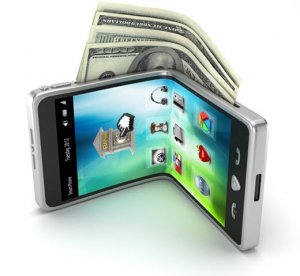A recent report from BI Intelligence indicated that smartphone payments are still dominated by the same tech giants.
Mobile wallet tech using contactless payment technology will be used by approximately 148 million people around the world, said a new report that was published by Juniper Research, which also claimed that this format will be the leader in mobile device based transactions.
That said, it is clear that within that limited space, there are clear leaders that have already carved out their positions.
The Juniper Research report identified Apple Pay and Samsung Pay as the two top mobile wallet brands that have grabbed hold of the largest share of the smartphone payments market. In fact, together, they are believed to hold a 70 percent share of the number of customers who use that type of contactless payment service in stores. This suggests that those two firms could be the dominant figures in this market and may be able to keep a firmer hold on their portion of that space than newer entrants or older ones that have not been as successful at gaining user-ship.
Apple Pay leapt into the mobile wallet space quite strongly as it had been a greatly anticipated service.
 It launched as one of the first major entrants into the American market, which helped to ensure that it would build users more quickly than smaller players or later joiners. While Samsung didn’t arrive nearly as early, it still held onto a competitive advantage in the fact that it can be used at both NFC technology based terminals and those that are compatible with a magnetic stripe card. In Apple’s case, the mobile payments service can connect only with NFC readers.
It launched as one of the first major entrants into the American market, which helped to ensure that it would build users more quickly than smaller players or later joiners. While Samsung didn’t arrive nearly as early, it still held onto a competitive advantage in the fact that it can be used at both NFC technology based terminals and those that are compatible with a magnetic stripe card. In Apple’s case, the mobile payments service can connect only with NFC readers.
Firms invested in mobile payments are pushing hard to gain U.S. customers, but adoption has been slow. Most consumers have yet to be convinced that there is any great benefit to using their smartphones instead of their plastic credit cards, which they already find to be quite convenient. Moreover, many people still face the barrier of comfort when it comes to feeling that their sensitive personal data will be kept secure.
Moreover, the adoption of NFC technology based contactless payments is also holding back widespread use in the United States, as only 20 percent of American terminals are actually equipped to accept transactions through those mobile wallets.

